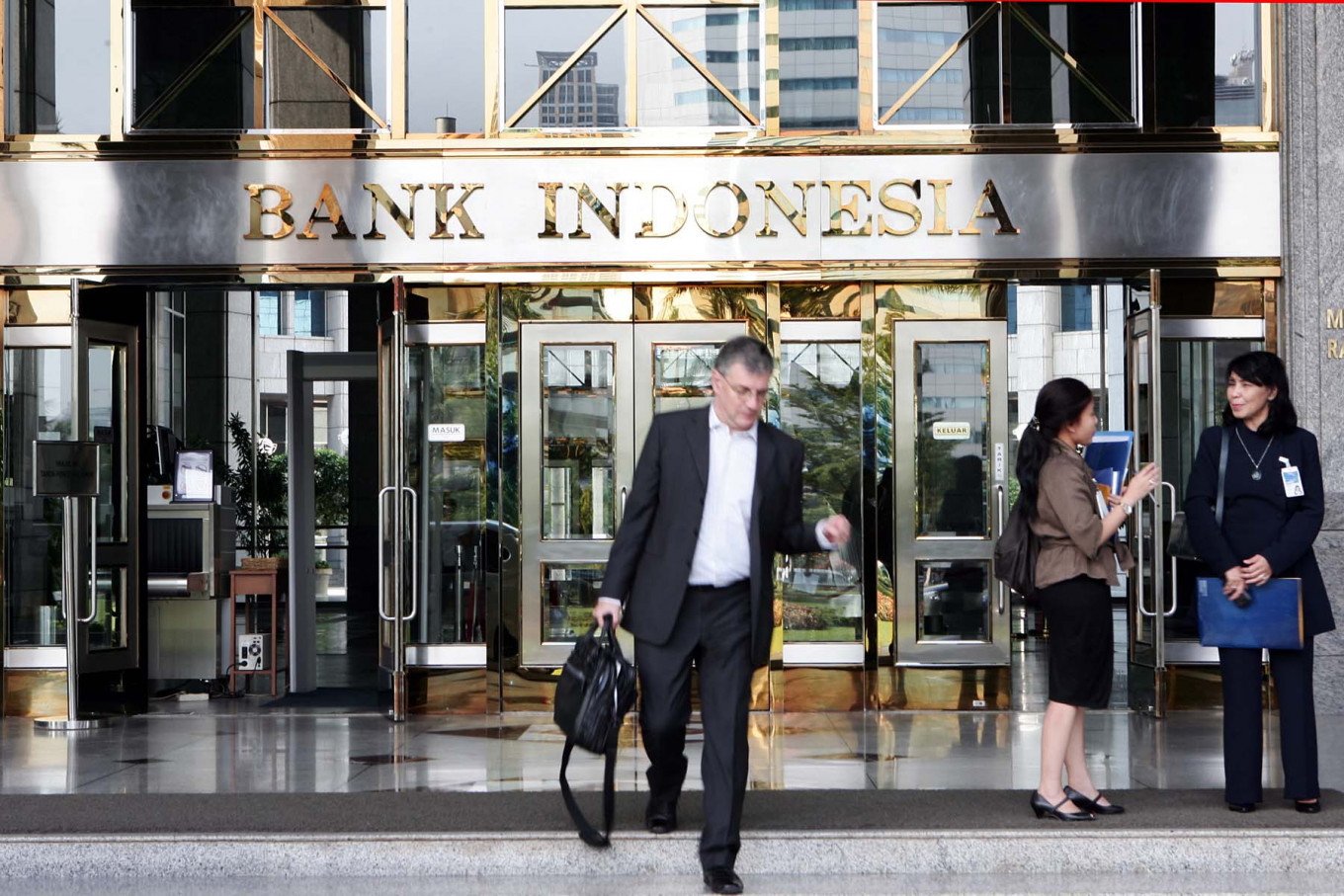Popular Reads
Top Results
Can't find what you're looking for?
View all search resultsPopular Reads
Top Results
Can't find what you're looking for?
View all search resultsBI maintains low interest rate amid virus surge
The flight to quality has sent the rupiah down more than 3 percent so far this year.
Change text size
Gift Premium Articles
to Anyone
B
ank Indonesia (BI) decided on Thursday to hold its benchmark seven-day reverse repo rate (7DRRR) at a record-low 3.5 percent to ensure financial stability as the outbreak of the Delta variant of the coronavirus compels investors to divert funds from developing to developed countries.
Following its two-day policy meeting, BI also kept the deposit and lending facility rates unchanged at 2.75 percent and 4.25 percent, respectively.
“This decision aligns with the need to maintain exchange rate and financial system stability due to global financial market uncertainty amid projected low inflation and efforts to support economic recovery from COVID-19,” BI Governor Perry Warjiyo said in a statement on Thursday.
BI wrote in the statement that investors had been dumping risky assets in a “flight to quality” after the Delta variant outbreak dampened the GDP growth outlook in developing economies such as India and many ASEAN countries.
This trend has seen the rupiah depreciate 3.39 percent year-to-date (ytd) as of July 21, which BI noted was less than declines seen in currencies of neighboring Southeast Asian countries, such as the Philippines, Malaysia and Thailand.
BI revised down Indonesia’s GDP growth outlook for this year to between 3.5 and 4.3 percent from between 4.1 and 5.1 percent due to mobility restrictions introduced to stem the second wave of COVID-19.
Read also: GDP growth forecast slashed to 3.7-4.5% as pandemic worsens
Statistics Indonesia (BPS) data show that inflation stood at 1.68 percent in June, which is lower than BI’s target range of between 2 and 4 percent for this year and next year.
At the same time, BI upgraded its global GDP growth outlook for this year to 5.8 percent from 5.7 percent on the back of robust growth in China and an accelerated vaccine drive and supportive fiscal and monetary policies in the United States and Europe.
“Global financial uncertainty is also rising amid market concern over rising COVID-19 infections and their effect on the global economy as well as in anticipation of the [US Federal Reserve reducing its bond-buying program],” reads the statement.
The central bank expects the Federal Reserve to begin easing monetary policy in 2022 and raising its rates in 2023 on the back of an accelerated US economic recovery.
Read also: BI holds benchmark rate as Fed remains dovish
Faisal Rachman, an economist at state-owned Bank Mandiri, the country’s largest bank by assets, wrote in a statement on Thursday that BI was expected to continue holding the benchmark rate at 3.5 percent throughout this year to support Indonesia’s economic recovery.
Bank Mandiri expects Indonesia’s inflation at 2.28 percent this year and reduced its GDP growth outlook to 3.69 percent from 4.43 percent.
However, Faisal also wrote that, “Thanks to low domestic inflation, Indonesia is able to keep the rate differential attractive, thus keeping capital flowing in and making the rupiah exchange rate relatively stable.”










